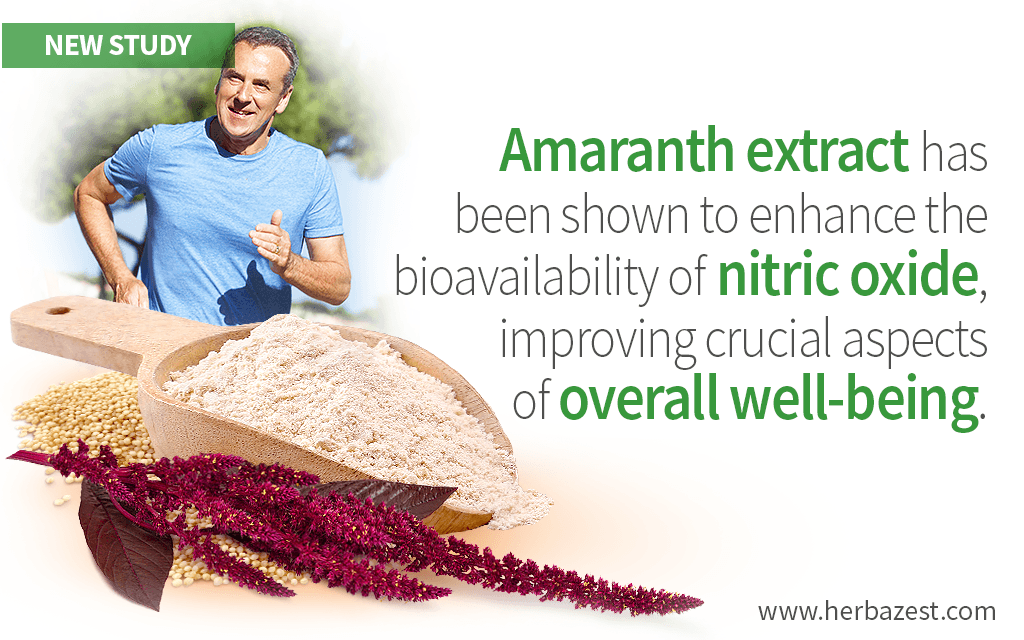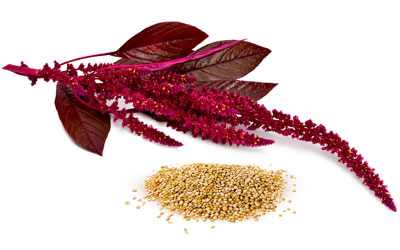While most people do not associate it with their health, nitric oxide (NO) is a one of the most crucial molecules in the body. It serves many key functions, like vasodilation, hormone production, and muscle contractility. One of the ways to produce NO is through the reduction of two molecules, called nitrate (NO3-) and nitrite (NO2-).
Interestingly, it has been found that dietary supplementation of NO3- may enhance NO bioavailability, thus improving the body's response to exercise, blood sugar regulation, vascular function, and more.1 The seeds and leaves of amaranth are naturally rich in NO3, potentially making this pseudocereal a good option for natural supplementation.
As such, the objective of this study was to examine whether amaranth extract can increase nitric oxide levels in the body.
The Study
This two-arm, randomized crossover trial was an undertaking of Indian researchers from the Amrita Vishwa Vidyapeetham University and Syncretic Clinical Research Services. Their findings were published in the Nutrition journal.
After recruiting 16 healthy males between the ages of 18 and 40, they assigned them to two groups.
Once baseline blood samples were collected, participants received either 2 grams of amaranth extract powder or 2 grams of glucose powder, dissolved in 300 mL of water. Several post-treatment blood and saliva samples were collected at various intervals.
Then, the groups switched regimens: those that initially received amaranth extract received glucose powder and vice versa.
The Results
In the amaranth extract-receiving participants, the levels of NO3- in the blood and saliva were significantly higher than in those in the placebo-receiving group. Peak blood levels of NO3- were reached within an hour and remained elevated for at least eight hours.
In amaranth extract receiving adults, there was also a significant increase of NO2- in the saliva as well as a slight increase of the molecule in the blood. No changes were observed in the placebo group.
There were no side effects reported in either of the groups.
What Does this Mean?
As evident in the results of this study, amaranth extract can increase nitric oxide levels in the body by elevating the levels of NO3- and NO2-. The effects of a single administration of amaranth extract last for at least eight hours.
Researchers suggest that these effects can be especially beneficial for athletes involved in vigorous sports, whose goal is to improve exercise efficiency and endurance.
More studies are called for to explore amaranth's benefits for individuals with endothelial dysfunction and age-related disorders.
Other herbs that can help boost nitric oxide levels naturally include beetroot, cacao, spinach, and kale.
Sources
- Nutrition, Pharmacokinetic study of amaranth extract in healthy human subjects – A randomized trial, 2015
Footnotes:
- Physiology and Nutrition. (2011). The nitrate-nitrite-nitric oxide pathway: Its role in human exercise physiology. Retrieved December 9, 2020 from https://www.tandfonline.com/doi/abs/10.1080/17461391.2011.635705







